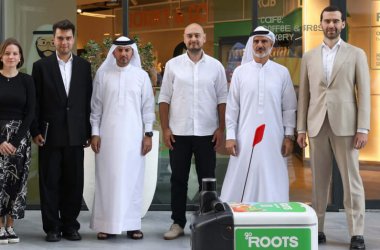 Hoteliers in the Middle East need to get out of the “traditional hotelier mindset” and start using technology to cater for a new generation of customers. This according to Joe Tesfai, senior VP of IT at Atlantis.
Hoteliers in the Middle East need to get out of the “traditional hotelier mindset” and start using technology to cater for a new generation of customers. This according to Joe Tesfai, senior VP of IT at Atlantis.
Tesfai said that the Atlantis’ high regard for IT has put them at the “forefront of technology” in an industry that often lags behind.
“Hospitality has traditionally been at the backend of technology. Kerzner International and Atlantis are at the forefront of technology because we focus on technology to enhance the guests’ experience. We don’t just put in technology for technology’s sake. We do a lot of testing in the back and also look at what other groups have done,” he said.
Tesfai referred to an imbalance of technology uptake in the region because, whilst many hotels in the Middle East are ahead in terms of the technology they offer their customers, they are behind in terms of their actual IT infrastructure.
“They forget technology because they want to speak to the guests. They expect their employees to be in front of the guest and managing the guest, but that’s the old way of hospitality. With the new way of hospitality you’ve got to look at the new generations of people coming into your hotel. The younger generation are the ones who are forcing us to utilise technology more effectively because they’re coming into the hotels with all these devices,” he said.
“We want to engage with them through their devices. It’s faster for us to refresh and change information when we engage in you through your devices. Although I’ve seen a lot of changes in hospitality over the last 20 years in terms of how fast it’s moving, it’s still behind other industries in terms of the adaptation of technology,” he added.
Atlantis is attempting to engage this new generation of users and stay ahead of the technology market by launching a tablet and smartphone application this year that customers can use before, during and after their stay at the hotel.
“Once you’ve made a reservation and downloaded the application, even before you get here you have access to the hotel systems in terms of restaurants, spa, the nightclub, Water Park, dolphins – you’ll have all that information at your fingertips and if you want to book something you can use that application,” Tesfai said.
“We then transfer all that information using that application through the cloud into our systems so that you already know once you get here what your itinerary is. While you’re here, you can then use that application to order room service from anywhere and for any time, and also to start charging events and activities to your room,” he added.
As well as capitalising on the mobility trend, Tesfai said the IT team at Atlantis is keeping ahead by embracing other key trends such as virtualisation and cloud.
“We’ve done virtualisation of servers, now we’re going to head towards virtualisation of desktops and also possibly networking. Cloud is a great initiative. I love the fact that it’s available. We’re actually a cloud to some other properties that we manage and we use cloud applications that are based in the US, Europe and elsewhere to run our business,” he said.
“Our central reservation system sits in Florida so to us it’s in the cloud, but it’s an internal cloud. We also use external clouds with other applications and other ERP systems,” he added.
Tesfai also offered his advice to other hotels on how to approach data and cloud.
“I would advise to other hotels to move everything out of your data centres into cloud applications. But you’ve got to choose the right cloud applications because you can’t just take an application that you host internally and make it a cloud application. Cloud applications are designed as such from the bottom up using service orientated architecture and software-as-a-service. If it’s designed incorrectly then you can’t suddenly move to cloud,” he said.
“Moving to cloud helps reduce your costs on the ground, your operational costs in terms of resources, people, turnover and everything else, because then you don’t need to maintain these complex applications in your data centre. At the end of the day our business is hospitality. We’re in the business of selling beds and hopefully once you get a warm body in that bed you can sell it some food. Technology is not our core business, which is why for hospitality groups it makes to move applications to the cloud and leave it to the experts,” he added.





